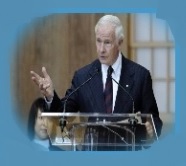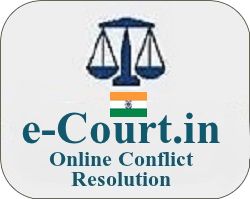Introduction :

Forceful Governor General tells lawyers:‘Heal
thyself’
"In a stinging rebuke, Johnston says it’s time legal
profession regains sight of justice, public good"
Lawyers and judges are losing sight of their
commitments to justice and the public good, and the profession must reform
itself and rebuild the trust of ordinary citizens, says Canadian Gov. Gen. David
Johnston.
In a rare, forceful speech at the opening of the Canadian Bar
Association’s annual meeting in Halifax on Sunday, Johnston issued a
stinging assessment of the legal profession and pleaded with it to
change.
“We need a new model for professionalism in law,” he
said. “To borrow a saying from a sister profession: physician, heal
thyself.”
A former dean of law at the University of Western Ontario, Johnston said lawyers such as himself enjoy a “social contract” with society: In return for self-regulation and a monopoly over the practice of law, he said, “We are duty bound” to improve justice and serve the public good. Instead, he said the profession is failing to uphold its end of the deal. Read more »
(Source: PostMedia News on 15 aug 2011 by Richard Foot)
The End of Lawyers?
Rethinking the Nature of Legal Services by Richard Susskind OBE and Are Lawyers doomed ?
A few quotes from readers :
"Challenging book about how legal services will be produced and delivered in the future."
"Brilliant ideas, new ways for legal professionals (my clients) to do and sell their work. Gives a good overview what technology has to offer in the future, also affecting the legal translators market."
"Makes a good case that lawyers must either innovate or face increasing risk of becoming obsolete."
"For me, this is a reference book. It helps me deliver high value to my clients."
"Richard sets a new challenge for all lawyers. He urges them to ask themselves what elements of their current workload could be undertaken more quickly, more cheaply, more efficiently, or to a higher quality using different and new methods of working. He argues that the market is unlikely to tolerate expensive lawyers for tasks that can be better discharged with support of modern systems and techniques. He claims that the legal profession will be driven by two forces in the coming decade: by a market pull towards the commoditisation of legal services, and by the pervasive development and uptake of new and disruptive legal technologies. The threat here for lawyers is clear - their jobs may well be eroded or even displaced. At the same time, for entrepreneurial lawyers, Susskind foresees quite different law jobs emerging which may be highly rewarding, even if very different from those of today". Read more »
The End of Lawyers? by Richard Susskind (London: Oxford University Press, 2008)The e-Court Story

We live in a constantly changing world - even arch-conservative lawyers need to adapt "e-Court will re-shape the future of Indian litigation - Forces transforming the legal industry promise the emergence of new models that will allow clients to reap huge efficiencies, but at the expense of law firms that fail to adapt"
India experiences, in common with most western democracies, an increasingly complicated society. It is, therefore, no surprise that the legal system across the country gets clogged up, especially where it regards civil and common law areas. The waiting time for trial can be anywhere from six months to three years or longer. Suggested reading: The Litigation Process
Even Small Claims Courts in India which provide a resolution for simple cases will take you the better part of a year to go through the entire Small Claims Court process i.e. have your trial and get judgement. Collecting adds further delay and is an entirely different story, it is by no means the easiest undertaking both in terms of additional expense and duration.
Apart from the unacceptable time it takes to find judgement in regular government courts, the actual litigation process also adds a mystique for many people and makes the entire process through the traditional courts a very frustrating and intimidating experience to the layperson.Click for video - The need for e-Court.
In recognition to above, e-Court has been introduced to provide competent, affordable, simple, speedy and transparent justice for everyone. e-Court also provides a uniform litigation system throughout India without the need to understand the peculiarities existing in each provincial legislative system. We encourage you to read about e-Court in the following pages. You shall not be disappointed. Join e-Court with the knowledge that legal justice is rendered with prior knowledge of expense and duration. It is expected that e-Court during its first six months of operations is capable of handling a minimum of #2,000 cases at any one time, with at least #200,000 cases at full maturity.

e-Court.in is currently in the process of filing its charter with Corporations Act of India.
* Judges, Arbitrators & Mediators
* The Directorate
* Originating Partners
* Management Team
* Supervisory Board
* Advisory Council
e-Court.in Legal Services Int'l Inc. is member of Canada based The International Court for Online Conflict Resolution ICOCR, the world's largest Online Conflict Resolution Network with operations in the following countries .
e-Court India is composed of an independent (self employed) group of experienced professionals like (former) lawyers, barristers, solicitors or attorneys, judges, mediators, university professors, industry and other legal interest groups. e-Court aims to offer a venue where members are linked to independent "participating" professionals who can provide competent, affordable, secure, transparent and speedy justice. These professionals whilst not being employees of e-Court have been thoroughly vetted prior to offering their services.
Forces transforming the legal & mediation industry promise the emergence of new models that will allow clients to reap huge efficiencies.
- Introduction
- Who we are/what we do
- How it works
- Join us
- What sets us apart
- Login
- Offline Networking
- FAQ
- For Investors
- Vacancies with e-Court India
- Where & How to Advertise
- India Sitemap
- Axis Bank are our bankers inclusive for escrow requirements.
- Dun & Bradstreet D-U-N-S Number: # 202509279.
- e-Court Anti-Spam Policy
Daily updated verified Security
Our Global Internet Presence:
Besides our primary domain address icocr.org, we employ numerous e-Court domain addresses around the world in countries such as : Canada, USA, Mexico, Hong Kong, Netherlands, UK, Denmark, France, Spain, Switzerland, Italy,Sweden, Germany, Belgium, Russia, Ireland, Austria, Greece, Portugal, Norway, Poland, Finland, Brasil, Chile, Kenya, Nigeria, Australia, New Zealand, India, China, Singapore, Japan, Taiwan, Indonesia, South Korea, Malaysia, Philippines, Emirates

Madhya Pradesh, India Secured by 256-bit SSL

 India
India